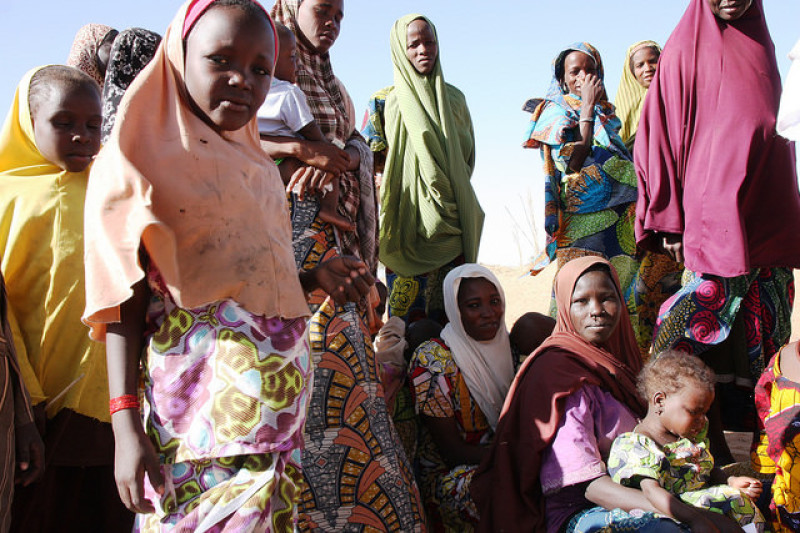

Boko Haram has left much of Northeastern Nigeria in ruins as survivors attempt to rebuild their lives.
Boko Haram has been pushed back to the Sambisa forest and the Nigerian military seems to have liberated almost all areas of Nigeria. Now, the Nigerian government must address the needs of the millions of displaced Nigerians, as well as the women once kidnapped by the terrorist group. In recent days, human rights groups have begun to see the extent of psychological, social, and economic damage that Boko Haram has caused.
In the past year, around 1.5 million Nigerians have been displaced as a result of Boko Haram's attempt to establish a caliphate. Numerous villages and towns in Northeastern Nigeria have been burned, pillaged, and riddled with bullet holes. Now that the militants no longer control these areas, residents are beginning to return to their damaged homes. Reuters reports that the infrastructure in most of these areas has been destroyed. Schools, hospitals, and banks were destroyed along with churches and homes. The population cannot rely on farming for income or food because of lack of equipment.
"Most people coming back are in hardship because there's no food. People are sick but there are no hospitals ... no vegetables, no lemons, no bananas ... We're not ready to go back to farming. All our machinery was burned or taken," Sini T-Kwagga, a Christian community leader, told Reuters.
Further, landmines remain hidden in the fields; Boko Haram militants placed them in order to stop the advance of Nigerian troops. These makeshift bombs place the population in danger; some farmers have been injured by explosions while trying to clear the fields. The militants also destroyed roads and bridges crucial to trade during occupation.
Currently, thousands of Nigerians are in refugee camps. These camps, however, are only a temporary solution to the problem of internally dislocated Nigerians. NGOs warn that once the government cuts off aid to these camps, the Nigerians will suffer from starvation.
Modupe Ozolua, president and founder of the Body Enhancement Foundation, told the IB Times, "These camps are temporary. They really don't care where these people end up." The Body Enhancement Foundation is a Nigerian non-profit organization that helps restore the lives of underprivileged Africans through education, modern medicine, food drives, and rehabilitation programs.
A camp in Gombe was closed back in February. Since then, the people have been starving and the government has not distributed food to local governments in the area.
Other human rights groups, such as the Human Rights Watch, spoke of the added difficulty that former Boko Haram captives face. Women that were held by Boko Haram were forced into sexual slavery or married off to militants; hundreds of them are pregnant. Rights groups state that the Nigerian population holds strong stigma towards the female captives of Boko Haram. The stigma keeps these women from being accepted into society, let alone being seen as suitable for marriage. The UN Population Fund is currently giving counseling and medical care to women who were held captive.
Northeastern Nigeria, a predominantly Muslim population, is a male-dominated society, says Ozolua. As a result, it is difficult for women to secure jobs and sources of income. With children to feed, but no way to feed them, some women have allegedly sold their children in some of the camps.
"These are people who don't have a voice "¦ Our priority is the women. We want them to be self-sufficient," said Ozolua.
Ozolua and her organization have distributed sewing machines, fabric, money, and oil-making supplies to women in camps to help them establish financial independence and sustainability.


















